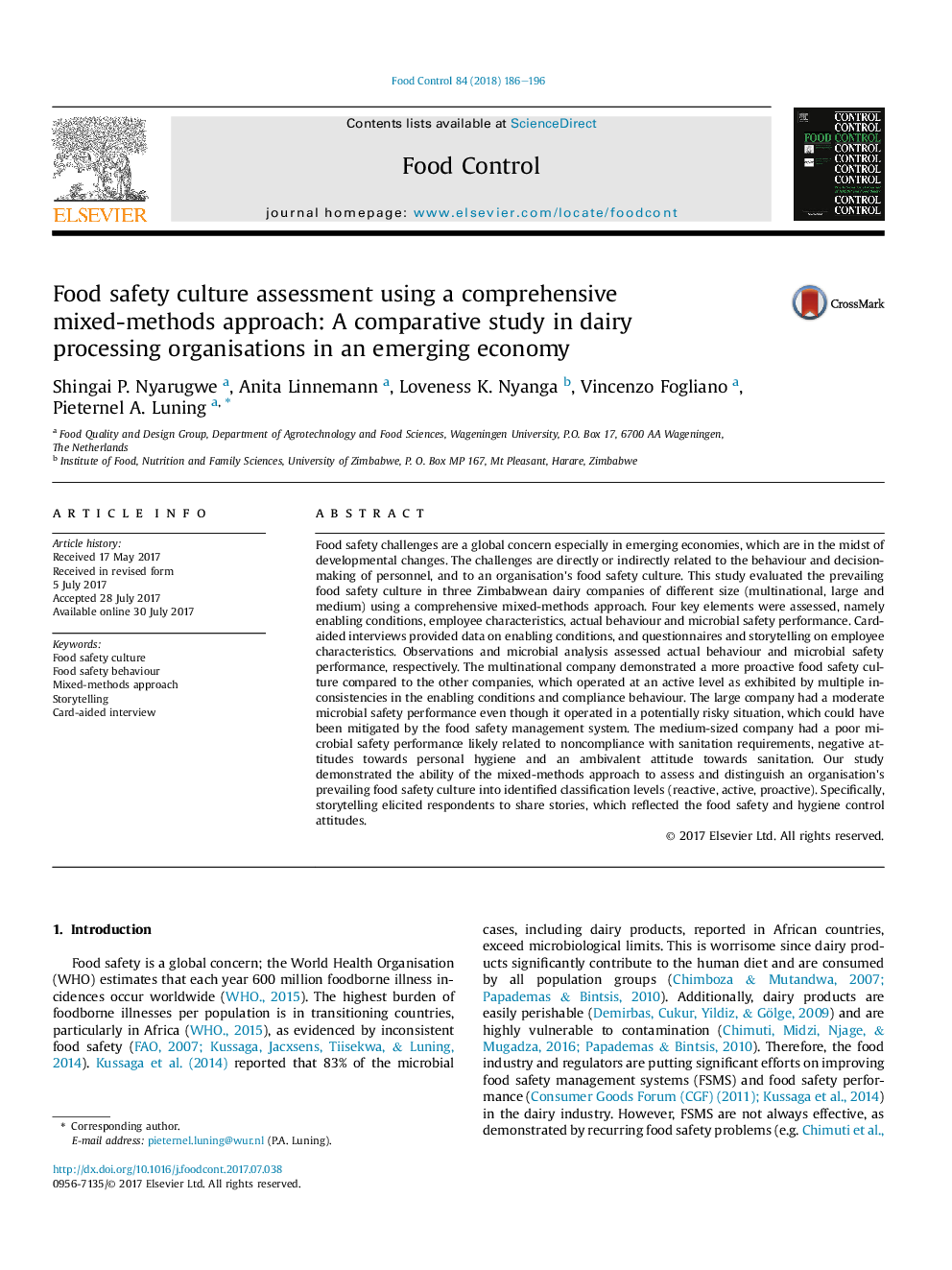| کد مقاله | کد نشریه | سال انتشار | مقاله انگلیسی | نسخه تمام متن |
|---|---|---|---|---|
| 5767296 | 1628380 | 2018 | 11 صفحه PDF | دانلود رایگان |
- A mixed-methods approach was suitable to assess prevailing food safety culture.
- Storytelling elicited respondents to share stories, which helped clarify attitudes.
- Participatory observation demonstrated ability to assess actual behaviour.
- Card-aided interviews elucidated supportiveness of provided enabling conditions.
- Prevailing food safety culture was clearly distinguished in the three companies.
Food safety challenges are a global concern especially in emerging economies, which are in the midst of developmental changes. The challenges are directly or indirectly related to the behaviour and decision-making of personnel, and to an organisation's food safety culture. This study evaluated the prevailing food safety culture in three Zimbabwean dairy companies of different size (multinational, large and medium) using a comprehensive mixed-methods approach. Four key elements were assessed, namely enabling conditions, employee characteristics, actual behaviour and microbial safety performance. Card-aided interviews provided data on enabling conditions, and questionnaires and storytelling on employee characteristics. Observations and microbial analysis assessed actual behaviour and microbial safety performance, respectively. The multinational company demonstrated a more proactive food safety culture compared to the other companies, which operated at an active level as exhibited by multiple inconsistencies in the enabling conditions and compliance behaviour. The large company had a moderate microbial safety performance even though it operated in a potentially risky situation, which could have been mitigated by the food safety management system. The medium-sized company had a poor microbial safety performance likely related to noncompliance with sanitation requirements, negative attitudes towards personal hygiene and an ambivalent attitude towards sanitation. Our study demonstrated the ability of the mixed-methods approach to assess and distinguish an organisation's prevailing food safety culture into identified classification levels (reactive, active, proactive). Specifically, storytelling elicited respondents to share stories, which reflected the food safety and hygiene control attitudes.
Journal: Food Control - Volume 84, February 2018, Pages 186-196
